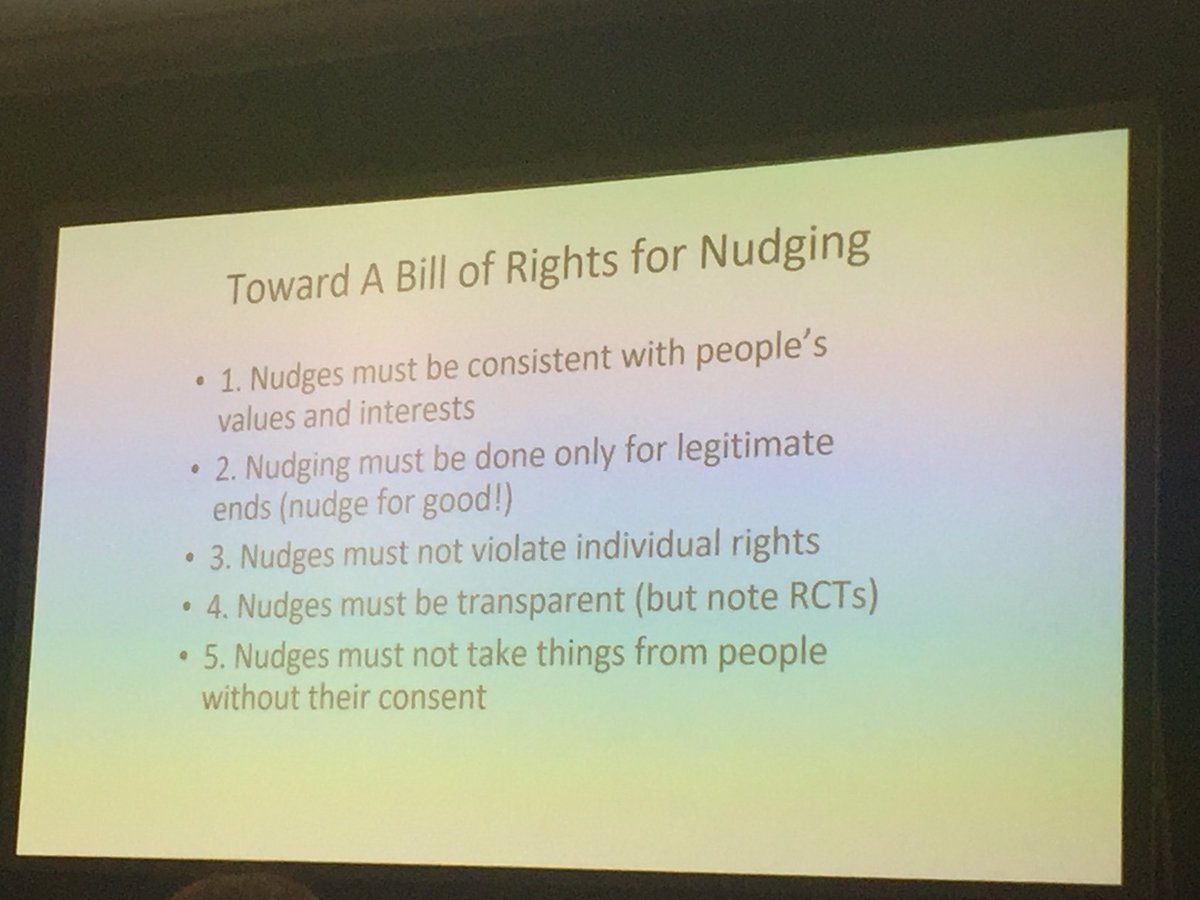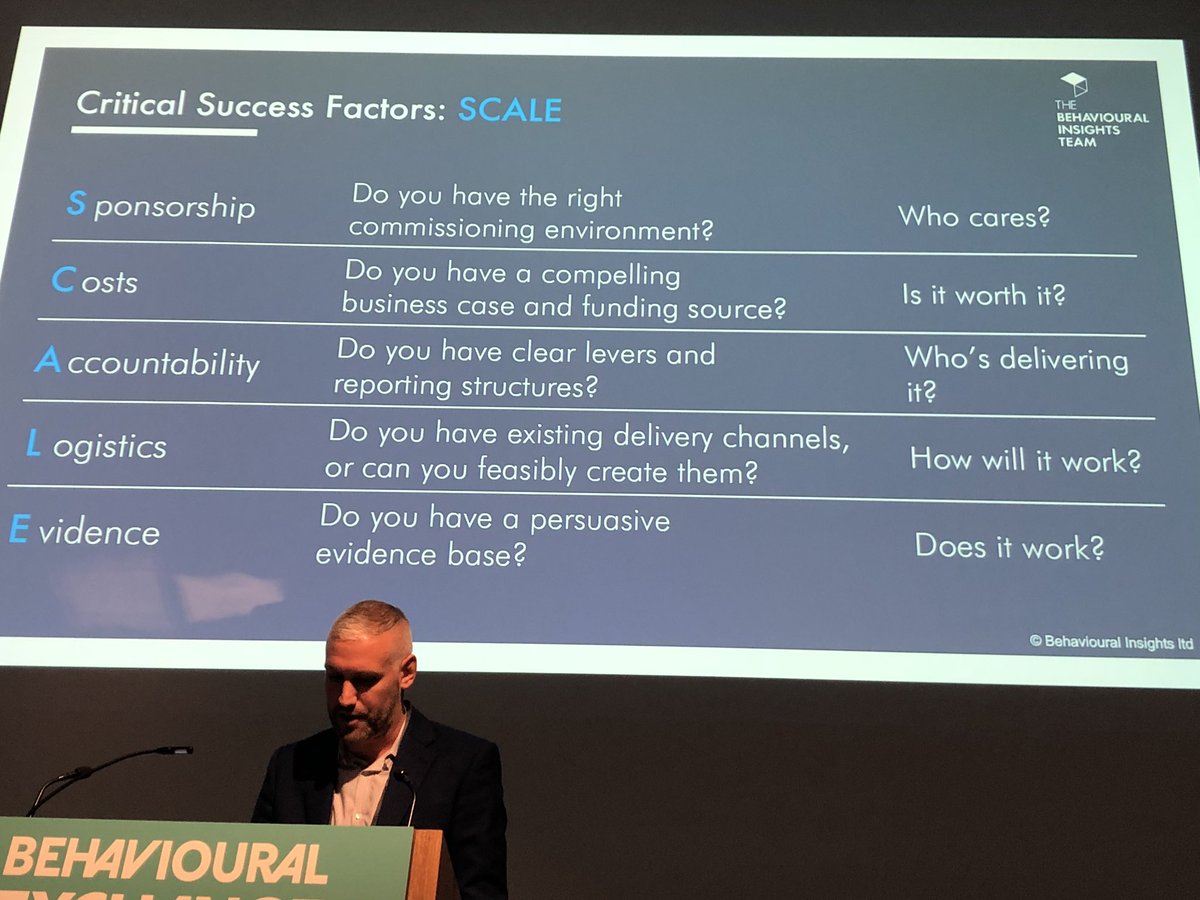I'll try to consolidate these threads into a more structured and coherent article when I get some time/recovered fully from the jet lag. Let me know what you find interesting/useful. (Thread 1 of 2) 🖌️🎨: @simonbankscrea8

The ethics of nudging - @CassSunstein proposed a 'Bill of Rights for Nudging', which covered five general principles that anyone in the business of nudging should consider. 📷: @kateglazebrook

A common realisation across both the public and private sector speakers and attendees was the challenge of taking nudges to scale.

Keynote @CassSunstein used a nice analogy - 'our GPS (e.g Google Maps) is the perfect nudge - is facilitates navigability for the end user, freeing up cognition to focus on more valuable tasks'.









